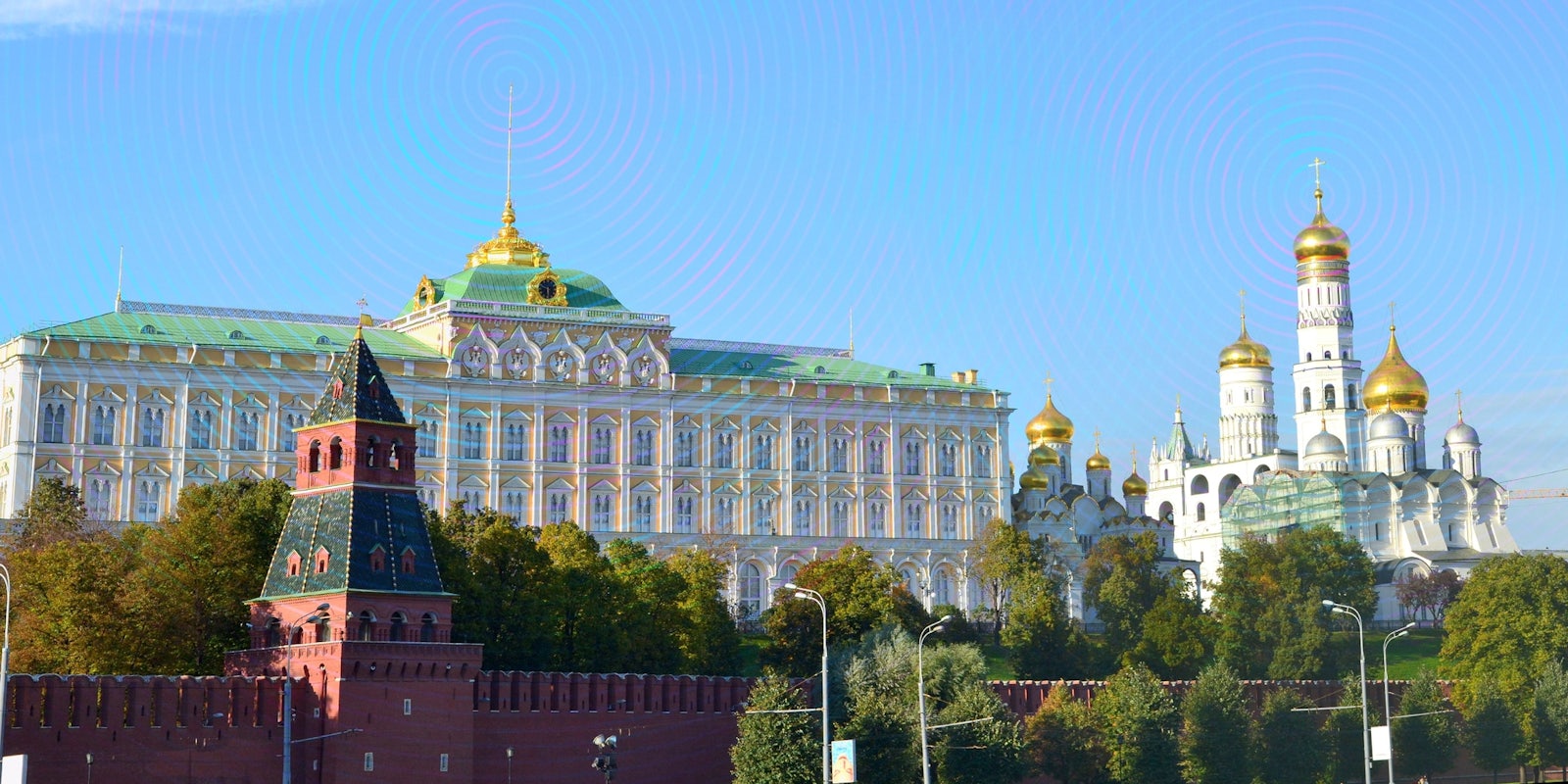There’s something strange going on at the Kremlin.
Standing a few blocks southwest of the fortified complex near another distinct landmark, the Cathedral of Christ the Savior, CNN correspondent Clare Sebastian’s phone begins to act a little screwy. The Google Maps app on her phone—which, relying on more than two dozen GPS satellites circling the globe, should accurately calculate her location anywhere in the world—no longer shows her standing on a bridge crossing the Moskva River.
Instead, it appears as if she’s nearly 20 miles away, standing in front of Vnukovo airport.
Experts believe the phenomenon is caused by a rogue signal (likely transmitted by the Russian Federal Protection Service) intended to disorient devices near the capitol building that navigate via the U.S.-based Global Positioning System (GPS).
The process of fooling a GPS system is called “spoofing,” and it’s relatively easy to perform on a single device with apps readily available on Google Play and Apple’s App Store.
GPS spoofing became more widely known this summer after Pokémon Go players began to use spoofing apps for the purpose of catching rare Pokémon in locations they couldn’t physically access. It’s really just a simple matter of manually feeding the device GPS coordinates instead of allowing it to acquire them from a satellite. The difference between Pokémon Go cheaters and what’s happening near the Kremlin, of course, is that the players were intentionally deceiving their own devices.
What’s going on in Moscow is more invasive: An external signal is somehow overriding the signals typically beamed down by GPS satellites. The purpose, experts who spoke to Sebastian speculate, is to automatically divert drones in the area. Commercial drones are often programmed to land or reverse course when approaching an airport, so tricking the devices into believing the Kremlin is actually an airport seems like a good defense.
There are other consequences, however. CNN reports that Uber customers traveling near the Kremlin are racking up exorbitant fees.
Sebastian’s report does not say whether the phenomenon affects devices running on GLONASS, the Russian equivalent to GPS, which attained global coverage roughly five years ago; however, a report in the Telegraph this October indicates that is the case.
